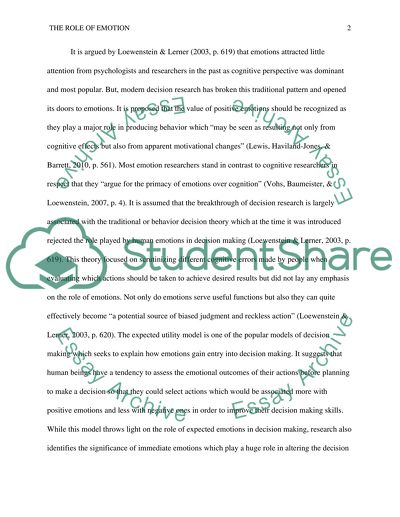Cite this document
(“The Role of Emotion in Decision Making Essay Example | Topics and Well Written Essays - 2750 words”, n.d.)
Retrieved from https://studentshare.org/psychology/1477195-the-role-of-emotion-in-decision-making
Retrieved from https://studentshare.org/psychology/1477195-the-role-of-emotion-in-decision-making
(The Role of Emotion in Decision Making Essay Example | Topics and Well Written Essays - 2750 Words)
https://studentshare.org/psychology/1477195-the-role-of-emotion-in-decision-making.
https://studentshare.org/psychology/1477195-the-role-of-emotion-in-decision-making.
“The Role of Emotion in Decision Making Essay Example | Topics and Well Written Essays - 2750 Words”, n.d. https://studentshare.org/psychology/1477195-the-role-of-emotion-in-decision-making.


